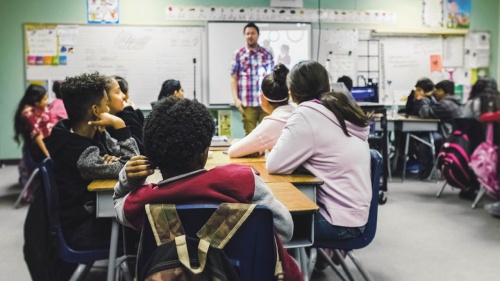Education and jobs part 2
The World Economic Forum report on the Fourth Industrial Revolution has identified a number of skills that people need to do well in the job market. Besides Technical skills such as programming languages, machine learning, automation etc. It also includes teamwork, Communication, independent thinking, Critical thinking, Decision-making, Emotional intelligence, and Complex problem-solving. The questions are: “Do educational leaders and teachers know about these needed skills are and why they are important to the job market? and “What are they doing to prepare the current and future students to acquire these skills?”
One of the issues that I often hear from company leaders is that there is a mismatch between their needs and the skills that students are learning in school. Last year, at an educational conference in Malaysia where many education leaders and company executives also attended, I gave a presentation about active learning method and concluded that if companies want to hire graduates that meet their needs, they have to collaborate with the school and invest in programs that train students on the skills that they need. But I was surprised during the follow-up discussion, some education leaders disagreed with my conclusion as they did not want their schools to become “vocational schools.” I explained to them that I did not suggest companies to influence changes to their educational system but recommend a collaboration between industries and education systems to improve the training and develop more opportunities for students. Whether companies help the school to add technical courses or by provide training for their teachers.”
“I believe the best way to improve the education system is to have the industries to take an active role in the training of students by investing in the schools that are producing their future workers. I further explained: “How many people ever asked why there is a difference between top private schools and public schools in the U.S.? Why most top U.S. universities are all private? Why most U.S. companies prefer to hire graduates from top private universities? Why competition to get into top universities are fierce? The fact is these top universities receive supports from private companies as they collaborate with them closely. On the contrary, public schools receive funding from the government so they may or may not pay attention to the industries’ needs. If you look at the training programs from these top universities you can see how they meet the needs of the industries and that explain why many companies want to hire their graduates.”
“Today, in some countries, there is a high unemployment among college graduates. At the same time, there is a shortage of skilled workers that the companies need. It should be every companies’ benefits to solve this problem by collaborating with the school system. But collaborating requires both sides who are willing to work together. If there is no action, every year, there will be hundred thousand unemployed college graduates who could receive proper training if their schools are willing to change. My question is: “ Knowing this, why students are still waiting for the schools to change but not finding alternative ways to learn from the Massive Open Online Courses (MOOCs) or other online tutorials to develop the skills that can get them a good job?
Note: Top ranking universities such as Harvard, Stanford, Yale, Massachusetts of Technology (MIT), Princeton, Cornell, Carnegie Mellon, and Columbia are all private schools with top faculties, current training curricula, and breakthrough research.
Sources
- Blogs of Prof. John Vu, Carnegie Mellon University
